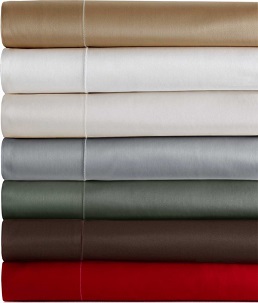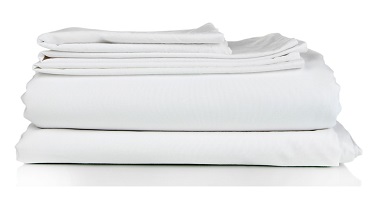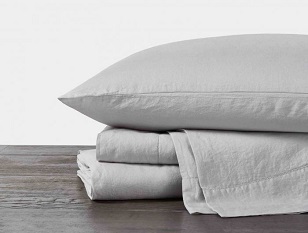
NATIONAL REPORT—Non-organic Cotton linen is standard in hotels today but their environmental impact—from the cotton field to the guestroom—is significant. According to Anna Sova, a provider of luxury organic cotton linen, conventional cotton makes up only 3 percent of the world’s crops but uses 25 percent of the world’s pesticides annually. Every pound of cotton grown has been treated with one-third pound of pesticides. Pesticide residues often can remain in the fabric through the processing and finishing stages of the garment.
It is not just the pesticides that pose an environmental and health risk—especially for those workers applying it—it is the chemical used to finish linen that can also cause harm. That chemical, formaldehyde, may make the linen wrinkle free, wrinkle resistant or stain resistant, but it can also produce a long list of health problems. These include watery eyes, burning sensations in the eyes, nose, and throat, and coughing, wheezing, nausea and skin irritation.
“You are laying on linen for six to eight hours,” says Dan Bornholdt, owner of Green Suites Hotel Solutions, another provider of organic cotton linen. “Your face is in your pillow case. The chemicals in the fabrics are pretty heinous.”
Formaldehyde a ‘Known Human Carcinogen’
In 2011, the National Toxicology Program, part of the U.S. Department of Health and Human Services, classified formaldehyde as a known human carcinogen—certainly a good reason to ask your supplier whether formaldehyde was used in the finishing of the linen you purchase.
Two certification organizations to look for when purchasing organic cotton linen are OEKO-TEX and the Global Organic Textile Standard (GOTS). As part of STANDARD 100 by OEKO-TEX, for example, important legal regulations, such as banned Azo colorants, formaldehyde, pentachlorophenol, cadmium, nickel, and other chemicals and substances are considered. A textile product carrying the GOTS label grade “organic” must contain a minimum of 95 percent certified organic fibers whereas a product with the label grade “made with organic” must contain a minimum of 70 percent certified organic fibers. GOTS also considers inputs such as formaldehyde as well as packaging material.

According to Green Suites’ Dan Bornholdt, organic cotton linen provides the same guest experience as standard cotton linen but should be laundered differently. “You would want a less harsh detergent—a hypoallergenic laundry product,” he says.
Bornholdt says Green Suites’ OEKO-TEX and GOTS certified organic cotton linen can be found at Cavallo Point Lodge and other resort destinations. The company offers fitted and flat sheets in different sizes along with pillow cases and duvet covers.
Anna Sova, which gives buyers an opportunity to donate to one of many different environmental organizations during their purchase, provides luxury organic bedding free of toxic pesticides and finished with eco safe bleaching, dying and finishing processes. Anna Sova provides flat and fitted sheets in king, queen and twin sizes as well as pillow cases and duvet covers. All are GOTS certified.
Cuddledown Marketing offers organic cotton fitted and flat sheets in five different colors and sizes. Pillow cases are also available in five colors and three sizes.

Unique Linen Subscription Program
According to Coyuchi, it was the first company to bring organic cotton bedding to the United States 25 years ago. It continues to use certified organic cotton today. Coyuchi offers a wide variety of organic cotton linen that features different finishes, threads, textures and prints.
Coyuchi offers a subscription program that enables customers to send back sheets in the packaging provided. Coyuchi then makes sure that, instead of ending up in the landfill, the linen goes on to a new life. To achieve that, Coyuchi has partnered with The Renewal Workshop. Using a CO2 washing process that uses no water or heat, The Renewal Workshop launders the returned sheets to like-new clean. Then they’ll inspect them for any minor repairs they may need and when they’re ship-shape, they’ll package them for sale as “renewed” linens in the company’s outlet store.
If linen can’t be renewed, The Renewal Workshop offers them to artisans and independent designers who upcycle textiles into new products like bags, clothing and accessories. And, finally, sheets and towels that aren’t upcycled are shredded and either composted or recycled into yarns that will be used to create new textiles. Coyuchi’s goal is to someday be able to re-spin 100 percent recycled cotton, an emerging technology that will completely close the loop on sustainability.
Purchasers of organic cotton linen can expect to pay more than standard cotton linens—about 25 percent more says Green Suites’ Bornholdt. That premium can be much higher depending on the supplier.
Glenn Hasek can be reached at editor@greenlodgingnews.com.






